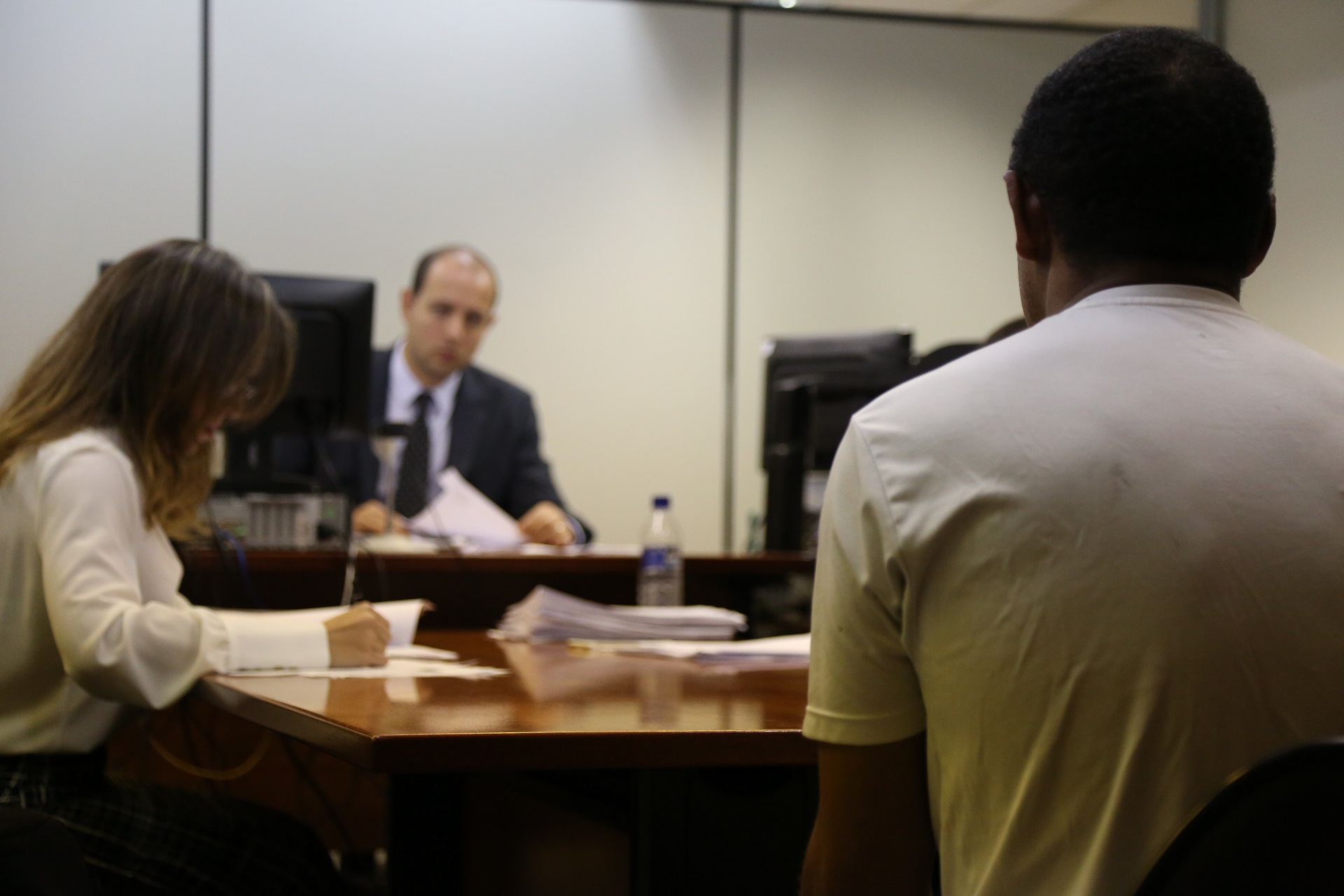Congress reinstates mandatory in-person custody hearings
After overturning vetoes to the “anti-crime” package, senators reject the possibility that pre-trial custody hearings can be held remotely
 Homem preso em flagrante é apresentado a um juiz em audiência de custódia realizada no dia 1/07/2016, no Fórum Criminal da Barra Funda, em São Paulo (SP).
Homem preso em flagrante é apresentado a um juiz em audiência de custódia realizada no dia 1/07/2016, no Fórum Criminal da Barra Funda, em São Paulo (SP).
In a session of the National Congress held on the evening of Monday, April 19, the Federal Senate overturned the vetoes by President Jair Bolsonaro to the so-called “anti-crime” package, a 2019 bill that made a series of changes to public security legislation.
In the Lower House of Congress, the vetoes to the “anti-crime” package were voted in March. The decision of the Senate, therefore, was pending.
One of the passages that senators reinserted into the text of the bill approved by Congress concerns the requirement for detainees to be presented before a judge within 24 hours of their arrest. The president’s veto would have enabled these custody hearings to be held by video conference.
The overturning of the vetoes comes in response to demands from civil society organizations that work to combat torture. Since last year, several organizations have promoted the campaign #TorturaNãoSeVêpelaTV (#YouCantSeeTortureOnTV) against remote hearings.
Read more:
- Custody hearings by video conference fail to combat torture
- Lower House of Congress approves “anti-crime” bill without exemption from illegality
According to Carolina Diniz, an advisor for the program to combat institutional violence at Conectas, custody hearings are an essential tool for identifying illegal detention and also for identifying abusive use of force by police officers.
“Custody hearings have been held by video conference at police stations, often in the presence of the very same officers who may have committed the mistreatment,” explained Diniz. “In addition to the physical distance preventing the judge from identifying signs of torture, the victim may feel intimidated to make a complaint,” she added.
According to Diniz, efforts should now focus on reversing the decision made by the CNJ (National Justice Council) in November 2020 that permitted, on an exceptional basis, custody hearings to be held by video conference during the Covid-19 pandemic.
“The investment in the implementation of custody hearings by video conference could be spent on appropriate health measures to protect against Covid-19 without jeopardizing the essential function of identifying illegal detention and signs of torture. Custody hearings should be considered an essential activity,” concluded Diniz.
Watch the video of the #TorturaNãoSeVêPelaTV campaign
“Anti-crime” Package
The bill that became known as the “Anti-Crime” Package consisted of a series of amendments to criminal and procedural law presented by the then Minister of Justice, Sérgio Moro, in 2019. The bill proposed a series of setbacks in criminal rights and guarantees that would worsen the prison chaos and police violence without tackling the structural problems that affect public security in the country.
Among the most controversial aspects were “exemption from illegality”, which would exempt police officers from liability for crimes committed in the line of duty; the “plea bargain”, which would enable prison sentences to be enforced after agreements between defendants and the Public Prosecutor’s Office; and the legal designation of “habitual offender”, which would restrict the right to a fair trial and make it harder to release people who are considered – not particularly objectively – to be “career criminals”. After strong mobilization from civil society in the Lower House of Congress, the most controversial passages were removed from the original text and the regulations for custody hearings and guarantee judges were included.


